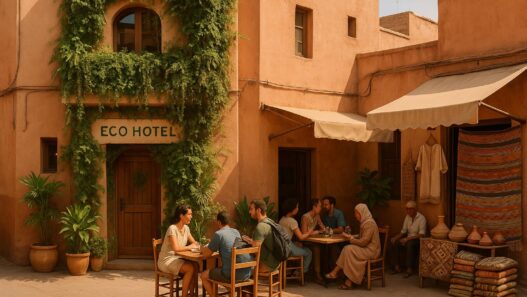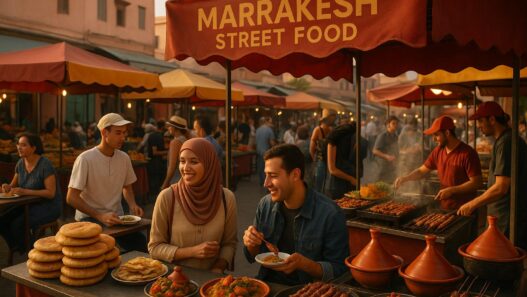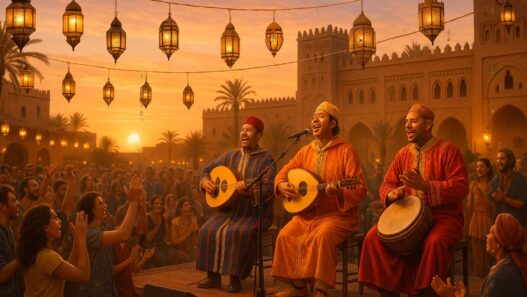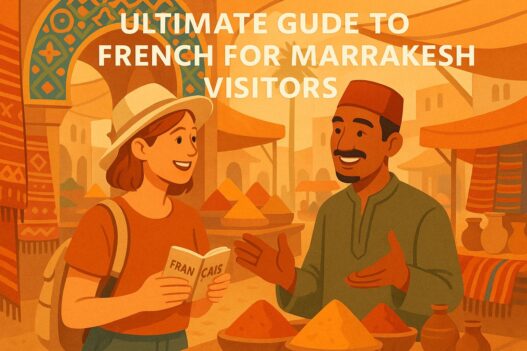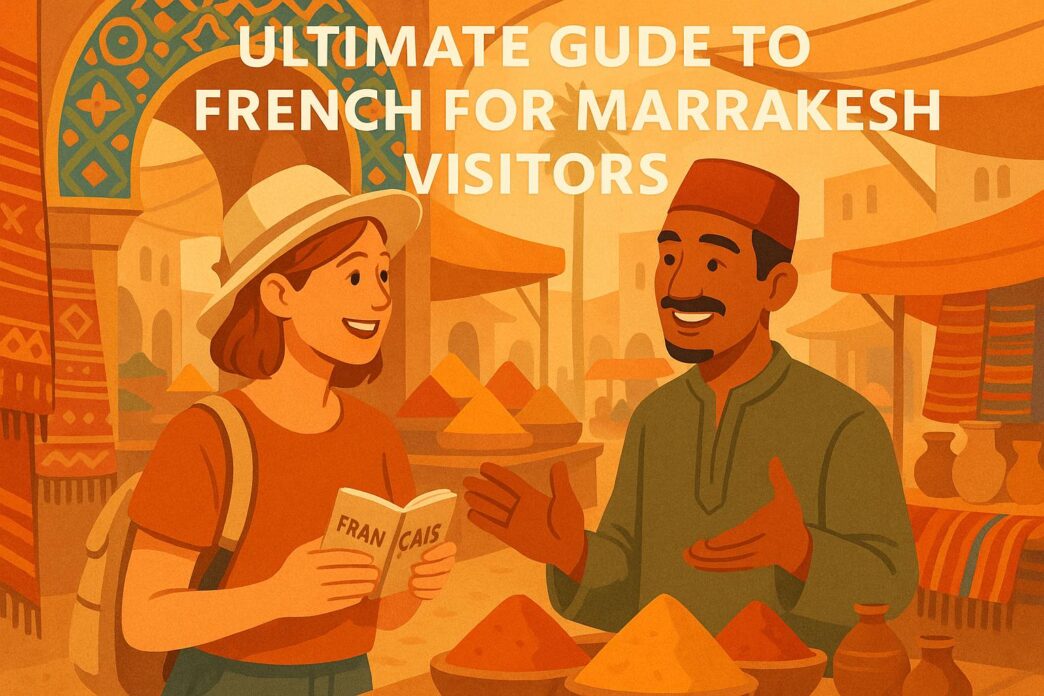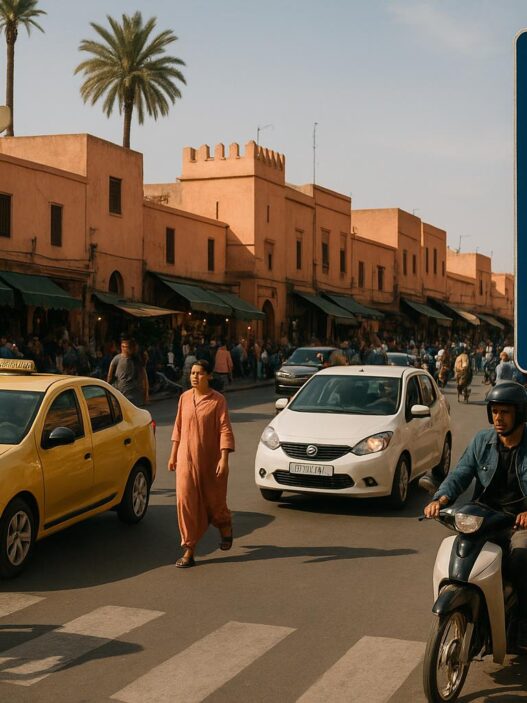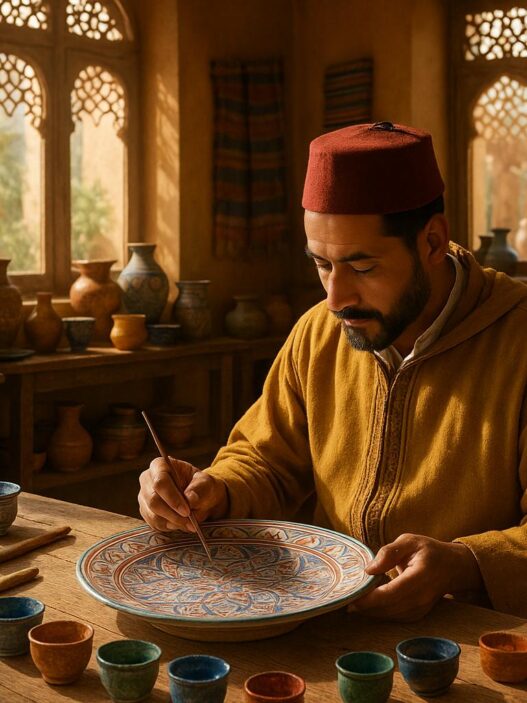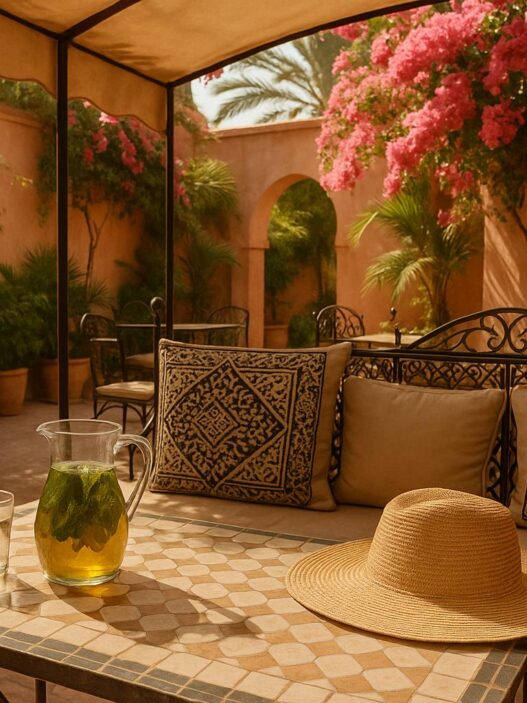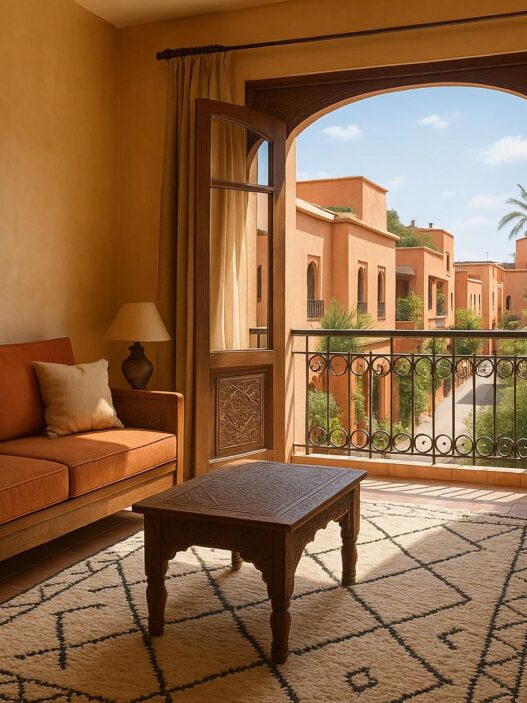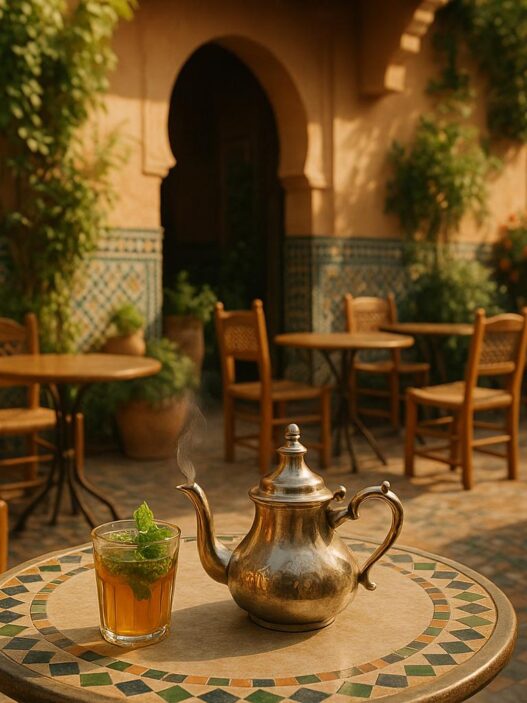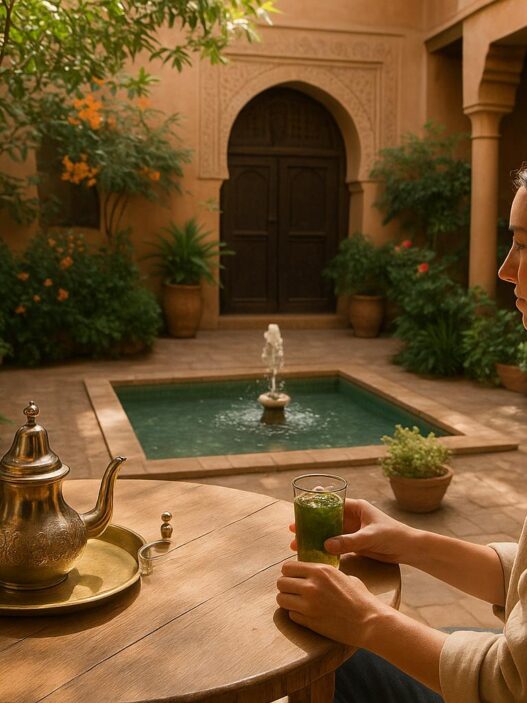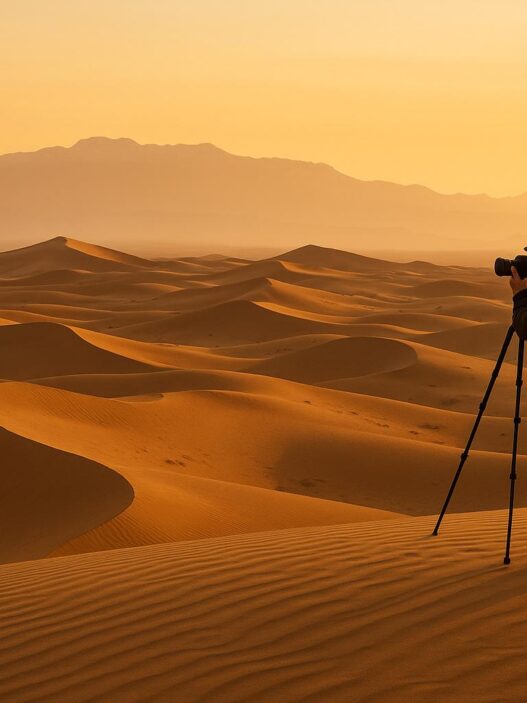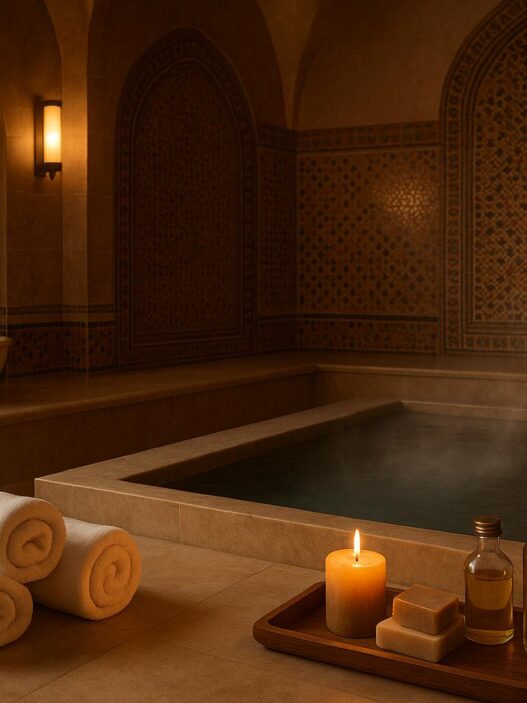French is widely used in Marrakesh, making it a helpful language for tourists. Whether you’re bargaining in the souks, ordering food, or asking for directions, knowing basic French phrases can improve your experience. Here’s a quick summary of what you’ll learn:
- Key Phrases: Simple greetings like "Bonjour" (Hello), "Merci" (Thank you), and "Où est…?" (Where is…?).
- Practical Scenarios: Use French for shopping, dining, transportation, and emergencies.
- When to Use French: Ideal in tourist spots, upscale areas, and formal settings. Arabic is common in local neighborhoods.
- Learning Tips: Practice with apps like Duolingo, focus on essential phrases, and rehearse real-life scenarios.
Speaking even a little French shows respect for the local culture and enhances your trip. Keep emergency phrases handy and start with polite basics like "Bonjour" and "Merci."
Must-Know French Phrases
Basic Greetings
Start every interaction with a friendly greeting. Here are some key phrases you’ll use throughout the day:
| Time of Day | Greeting | Pronunciation | When to Use |
|---|---|---|---|
| Morning | Bonjour | bon-ZHOOR | Until late afternoon |
| Evening | Bonsoir | bon-SWAHR | After 6 PM |
| Goodbye | Au revoir | oh ruh-VWAHR | Any time |
| Thank you | Merci | mair-SEE | Always appreciated |
| Please | S’il vous plaît | seel voo PLEH | Shows politeness |
Now, let’s move on to phrases for navigating Marrakesh.
Getting Around: Direction Phrases
These phrases will help you find your way:
- Où est…? (Where is…?) – Ask for specific locations.
- À droite/à gauche (Right/left) – Follow directions easily.
- Tout droit (Straight ahead) – Commonly used for navigation.
- Je cherche… (I’m looking for…) – Handy when searching for landmarks.
Pair these phrases with common landmarks like la médina (the medina), le souk (the market), or la place (the square) to communicate effectively in Marrakesh’s winding streets.
Shopping and Price Negotiation
Haggling is part of the experience in Marrakesh’s markets. These phrases will help:
| Purpose | French Phrase | English Meaning |
|---|---|---|
| Asking price | C’est combien? | How much is it? |
| Too expensive | C’est trop cher | That’s too expensive. |
| Bargaining | Je peux avoir un meilleur prix? | Can I get a better price? |
| Numbers | Un, deux, trois… | One, two, three… |
Restaurant and Food Orders
Dining out is easier when you know these essential phrases:
- Je voudrais… (I would like…) – For placing your order.
- L’addition, s’il vous plaît (The bill, please) – When you’re ready to pay.
- C’est délicieux (It’s delicious) – To compliment the food.
- De l’eau (Water) – To ask for water.
For dietary preferences or restrictions, use these:
- Sans gluten (Gluten-free)
- Végétarien (Vegetarian)
- Halal (Halal-certified)
Knowing these phrases not only simplifies your dining experience but also helps you connect with the local culture.
Top French Phrases for Travel you NEED to Know 🇫🇷[French …
French vs Arabic: When to Use Each
In Marrakesh, French is your go-to for formal or tourist settings, while Arabic (specifically Moroccan Arabic, or Darija) works best in local, everyday interactions. Recent data from the Moroccan Tourism Board shows that 92.7% of locals speak Darija, but French still plays a key role in specific contexts.
Best Times to Speak French
French dominates in formal settings and places catering to tourists. Here’s where it’s most useful:
| Setting | French Usage | Example Phrase |
|---|---|---|
| Luxury Hotels | Widely used; most staff speak French | "Je voudrais réserver" |
| Government Offices | Common in administration and law enforcement | "J’ai besoin d’aide" |
| Upscale Restaurants | Standard in established eateries | "L’addition, s’il vous plaît" |
| Medical Facilities | Essential for technical communication | "J’ai mal à…" |
"French remains the primary language of commerce and formal interactions in Marrakesh, with 89% of high-end hospitality staff being fluent French speakers", according to the Moroccan Tourism Board’s 2024 study.
For example, the Royal Marrakech Hospital uses both French and Arabic for emergency signage, but medical staff often respond faster to French phrases. While French is key in formal spaces, day-to-day interactions often mix both languages.
Mixed Language Communication
In modern Marrakesh, people often switch between French and Arabic during conversations. A common approach includes:
- Starting with a French greeting like "Bonjour"
- Switching to Arabic when needed
- Using French numbers for prices
- Ending with an Arabic thank-you
Some popular hybrid expressions include:
- "Merci bzef" (Thank you very much)
- "Inchallah demain" (God willing, tomorrow)
- "Pas de problème, hamdoulah" (No problem, praise be to God)
An Al Akhawayn University study from 2023 revealed that 72% of residents outside tourist zones prefer Arabic, while language choice in tourist areas depends on the situation. Younger locals (under 35) are more fluent in French (84%) compared to just 41% of those over 60.
Here’s a quick guide to help you navigate language use:
| Area | Primary Language | Purpose |
|---|---|---|
| Medina Markets | Arabic/Darija | Building trust |
| Guéliz District | French | Business communication |
| Historical Sites | French | Tourist guidance |
| Local Neighborhoods | Arabic | Community interaction |
In the Ville Nouvelle, younger professionals often prefer French, while traditional craftsmen in the medina tend to stick to Arabic. These patterns can help you decide which language to focus on when visiting Marrakesh.
sbb-itb-fa26f1f
Quick French Learning Tips
Learn essential French quickly with techniques tailored for travelers.
Learning Tools for Travelers
If you’re preparing for a trip, focus on these effective study options:
| Learning Style | Recommended Tools | Time Investment |
|---|---|---|
| Audio Learners | Pimsleur French Travel Course | 30 mins/day |
| Visual Learners | Memrise Travel French | 20 mins/day |
| Interactive Learners | Practice with Moroccan tutors on iTalki | 1 hour/week |
| On-the-Go Learners | Duolingo French Basics | 15 mins/day |
Key areas to focus on include:
- Numbers (1-1,000)
- Directions
- Food-related vocabulary
- Emergency phrases
Once you’ve got the basics, it’s time to work on speaking confidently.
Speaking Practice Guide
Clear pronunciation is key to being understood. Try these methods to sharpen your speaking skills:
-
Shadow Speaking
Listen to Moroccan French audio clips and repeat immediately after. Pay attention to rhythm, tone, and intonation. -
Situation Rehearsal
Practice phrases you’ll use in real-life scenarios, such as:- Ordering food at a restaurant
- Asking for directions
- Negotiating prices
- Checking into hotels
-
Record and Compare
Record yourself saying French phrases, then compare your pronunciation to native speakers. Here’s a quick guide to common pronunciation challenges:
| Sound | Common English Mistake | Correct French Sound |
|---|---|---|
| "R" | Rolling the R | Produced in the throat |
| "U" | Saying "oo" | Pursed lips, similar to whistling |
| "E" | Long E sound | Short and clipped |
These techniques will help you communicate more effectively and confidently during your travels.
French for Medical and Emergency Needs
When traveling, knowing key medical phrases in French can be a lifesaver – especially in a place like Marrakesh. Being prepared with these expressions can help you handle urgent situations effectively.
Emergency Help Phrases
Here are some essential French phrases to use during emergencies:
| Emergency Situation | French Phrase | English Meaning |
|---|---|---|
| Medical Emergency | "J’ai besoin d’un médecin d’urgence" | I need a doctor urgently |
| Calling Ambulance | "Appelez une ambulance" | Call an ambulance |
| Police Help | "Police, s’il vous plaît" | Police, please |
| Location Help | "Je suis à…" | I am at… |
| Pain Description | "J’ai très mal ici" | I have severe pain here |
Speak clearly and slowly when using these phrases, and make sure you know the local emergency numbers.
Medical Terms and Phrases
If you need to visit a doctor or pharmacy, these phrases will come in handy:
Common Symptoms in French:
- J’ai de la fièvre – I have a fever
- Je suis allergique à… – I am allergic to…
- Je me sens étourdi(e) – I feel dizzy
- J’ai mal à la tête – I have a headache
- J’ai mal au ventre – I have a stomach ache
At the Pharmacy:
- Avez-vous des médicaments pour… – Do you have medicine for…
- Je voudrais quelque chose pour… – I would like something for…
- Quelle est la posologie? – What is the dosage?
To be extra prepared, carry a small medical card in French that lists your blood type, medical conditions, current medications, and any allergies. Keep this card in your wallet or purse for quick access. While translation apps can help, memorizing these phrases ensures you’re ready for any situation.
Conclusion: Making the Most of French in Marrakesh
Using French during your trip can help you connect more deeply with Marrakesh’s people and culture.
Key Takeaways
Speaking French enhances your travel experience in Marrakesh. Here are the main ways it can make a difference:
Where You’ll Use French Most:
- Bargaining in the bustling souks
- Ordering meals and discussing food preferences
- Asking for directions or arranging transportation
- Handling emergencies with quick, essential phrases
Why It Matters: Speaking French helps you interact more naturally with locals and can often lead to better service.
These basics are your foundation for navigating Marrakesh with confidence.
Tips to Get Started
Here’s how to start incorporating French into your daily routine:
Daily Practice Plan:
- Start each day by practicing 2-3 simple greetings.
- Learn numbers 1-20 to make bargaining easier.
- Memorize a few key phrases for ordering at restaurants.
Practical Use Suggestions:
- Greet people with “Bonjour” and use polite phrases as a starting point.
- If needed, switch to Arabic after attempting French.
- Keep emergency phrases handy on your phone for quick access.
Quick Wins:
- Focus on clear pronunciation rather than perfect grammar.
- Practice with hotel staff, who often speak both French and English.
- Use gestures to help convey your message.
- Download offline French language packs for translation apps to assist in tricky situations.
Even a basic grasp of French can turn your trip from a standard tourist experience into something much more engaging and memorable.
FAQs
Why should I learn some basic French phrases before visiting Marrakesh?
Learning a few basic French phrases can make your trip to Marrakesh smoother and more enjoyable. French is widely spoken in Morocco, especially in cities like Marrakesh, and knowing key phrases can help you connect with locals, ask for directions, or shop at markets more confidently.
It also shows respect for the local culture, often resulting in warmer interactions and a more authentic travel experience. Even a simple ‘bonjour’ (hello) or ‘merci’ (thank you) can go a long way in making your visit more memorable.
What are the best ways to quickly learn basic French phrases before visiting Marrakesh?
Learning a few key French phrases before your trip to Marrakesh can make your experience smoother and more enjoyable. Here are some quick and effective methods to get started:
- Use language apps: Apps like Duolingo, Babbel, or Memrise offer bite-sized lessons perfect for learning essential phrases on the go.
- Practice with flashcards: Create or download flashcards for common phrases like greetings, directions, and ordering food.
- Watch videos or listen to podcasts: Platforms like YouTube have short, beginner-friendly French lessons focused on travel phrases. Podcasts are also great for practicing pronunciation.
- Write a cheat sheet: Jot down key phrases such as "Bonjour" (Hello), "Merci" (Thank you), and "Combien ça coûte?" (How much does it cost?) to carry with you.
With just a little preparation, you’ll feel more confident navigating Marrakesh and connecting with locals in French!
When should I use French instead of Arabic while visiting Marrakesh?
In Marrakesh, French is widely used and often preferred in many situations, especially in tourist areas, hotels, restaurants, and shops that cater to international visitors. While Arabic is the primary language in Morocco, French acts as a second language and is commonly spoken by locals in business and service settings.
If you’re interacting with hotel staff, reading menus, or shopping in areas popular with tourists, you’ll find French to be more effective. On the other hand, if you’re exploring local markets or engaging with older residents, a few basic Arabic phrases can go a long way in showing respect and building rapport. Learning a mix of key phrases in both languages will help you navigate Marrakesh more smoothly.





